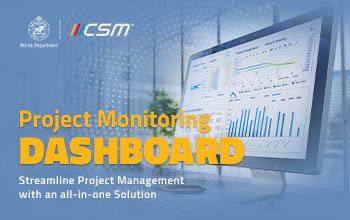.jpg)
Kenya has made strides in recent years to improve its business environment, but more work is still needed. The country ranks poorly on the World Bank's annual Ease of Doing Business rankings - coming in at 129 out of 190 economies in the 2020 report. While Kenya performs reasonably well on metrics like getting electricity and registering property, it lags significantly behind regional peers on critical factors like starting a business, paying taxes and trading across borders.
Technology provides a major opportunity for Kenya to leapfrog obstacles and facilitate commerce. According to the McKinsey Global Institute, digital finance alone could boost the country’s GDP by $34 billion by 2025. But capitalizing on these potential gains requires focused investment and reforms.
One major pain point for entrepreneurs is simply registering a new business. According to the World Bank, it takes about 22 days on average to launch a commercial enterprise in Kenya, versus less than one week in high-income OECD countries. Completing necessary paperwork often requires visiting multiple government offices and navigating complex bureaucracy. Transitioning business registration and other services online could dramatically improve efficiency.
A model worth examining is Singapore - the country ranks among the easiest places on earth to start a business. Entrepreneurs can complete most necessary procedures through the BizFile+ website and get a new company registered in as little as 15 minutes. The Accounting and Corporate Regulatory Authority (ACRA) pledges that applications submitted online will be approved within one business day.
.jpg)
The Kenyan government has already taken some positive steps, such as digitizing the business name search process and some company registrations. But more work remains. A priority should be allowing all regulatory processes to be completed seamlessly via online portals. Integrating data systems across government agencies and providing digital document submission would reduce hassles and delays.
Paying taxes is another major headache, consuming nearly 200 hours per year for the average medium-size company in Kenya according to the World Bank. Part of this burden could be alleviated by improving online systems and integrating platforms across different levels of government. For example, the Kenya Revenue Authority’s online portal iTax has eased national tax payments, but additional administrative hurdles often remain at county levels.
Trade logistics and customs management are also ripe for a digital overhaul. McKinsey estimates that adopting digital customs, risk management and trade financing tools could reduce cross-border transaction costs by up to 20% for African small and medium enterprises. Kenya in particular stands to benefit as a major trade hub in East Africa.
Integrating blockchain technology and single-window clearance systems could dramatically improve efficiency at bustling ports like Mombasa. The Kenya Trade Network Agency is already piloting a National Electronic Single Window System, but widespread adoption is still a work in progress.
Kenya demonstrated ingenuity during the pandemic by rapidly transitioning many government services online. According to a UN survey, Kenya was the only African nation to launch a centralized platform for coronavirus news, health regulations, and digital service delivery. The Kazi Mtaani initiative to digitally register and pay urban youth for hygiene work was also a model for technology-enabled social welfare in the region.
.jpg)
The next step is to build on this momentum the country acquired during the pandemic. The government should continue investing in digital infrastructure and skills development. Creating a culture of innovation and public-private collaboration will further help. Digitization alone will not remove all the roadblocks to enterprise in Kenya. Policy reforms and improved physical infrastructure are also essential. But deploying technology thoughtfully provides an opportunity to modernize systems and reinvigorate commerce. With the bold digital thinking exemplified during the pandemic, Kenya can lead the region in using technology to ease and accelerate business.
At CSM Africa, it remains our endeavour to enrich governance systems and their compliance mechanism to build ‘ease of doing business’. From our work with Ethio ICT Park in Ethiopia to AURIC in Maharashtra, we have enabled administrators to make compliance and regulatory services more accessible and transparent for businesses.
You can read more about it at: https://www.csm.tech/industry/land--industry/


























































We will verify and publish your comment soon.